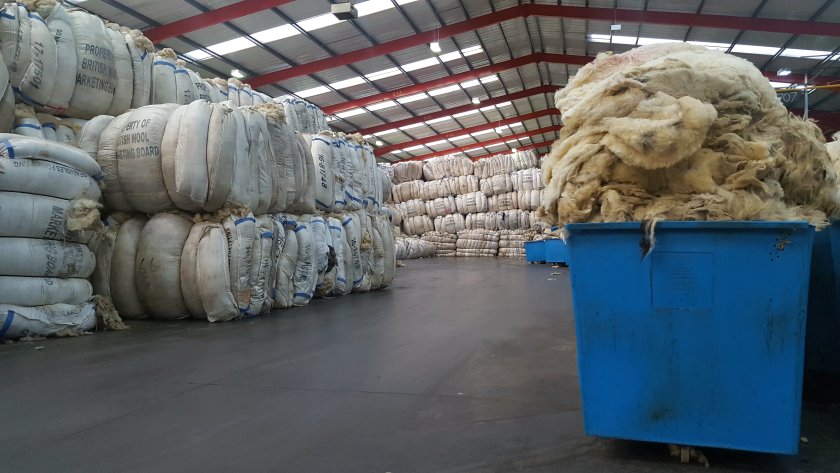
British Wool will abolish onward carriage fees for approved collection sites as part of changes to producer haulage charges for the 2021 season.
The Bradford-based co-operative has confirmed that producers will not have to pay for transporting their wool to collection sites this year.
A charge of £5.15 per wool sheet is usually made for deliveries to haulier depots and authorised collection sites.
British Wool said the change would 'further support' farmers following a tough year due to the pandemic's impact on the sector.
Andrew Hogley, British Wool's newly-appointed CEO, said the move demonstrated its 'commitment in delivering a high level of service to producers'.
“Throughout the pandemic British Wool’s depots and collection sites remain open in a Covid secure manner," he said.
"We continue to accept all types of wool from all producers, a principal which lies at the core of our cooperative ethos."
Mr Hogley added that a small number of producers chose to hold on to their wool last year, which meant British Wool handled less wool.
This, in turn, had a negative impact on the co-op's operating cost per kilo, he explained.
"The more wool we handle the more cost effective our operations become which in turn allows us to return more value to all producers.
"With this in mind please encourage your colleagues in the farming community to support British Wool and deliver their wool this year.”
The news follows this week's appointment of Mr Hogley as British Wool's new permanent chief executive officer.
British Wool chairman Jim Robertson said: “Andrew has done an excellent job driving the business forward and implementing the restructuring plans we announced at the beginning of the year.
“The Board look forward to working with Andrew, ensuring we continue to represent the best interests of our producers and in maximising the value of their wool.”
